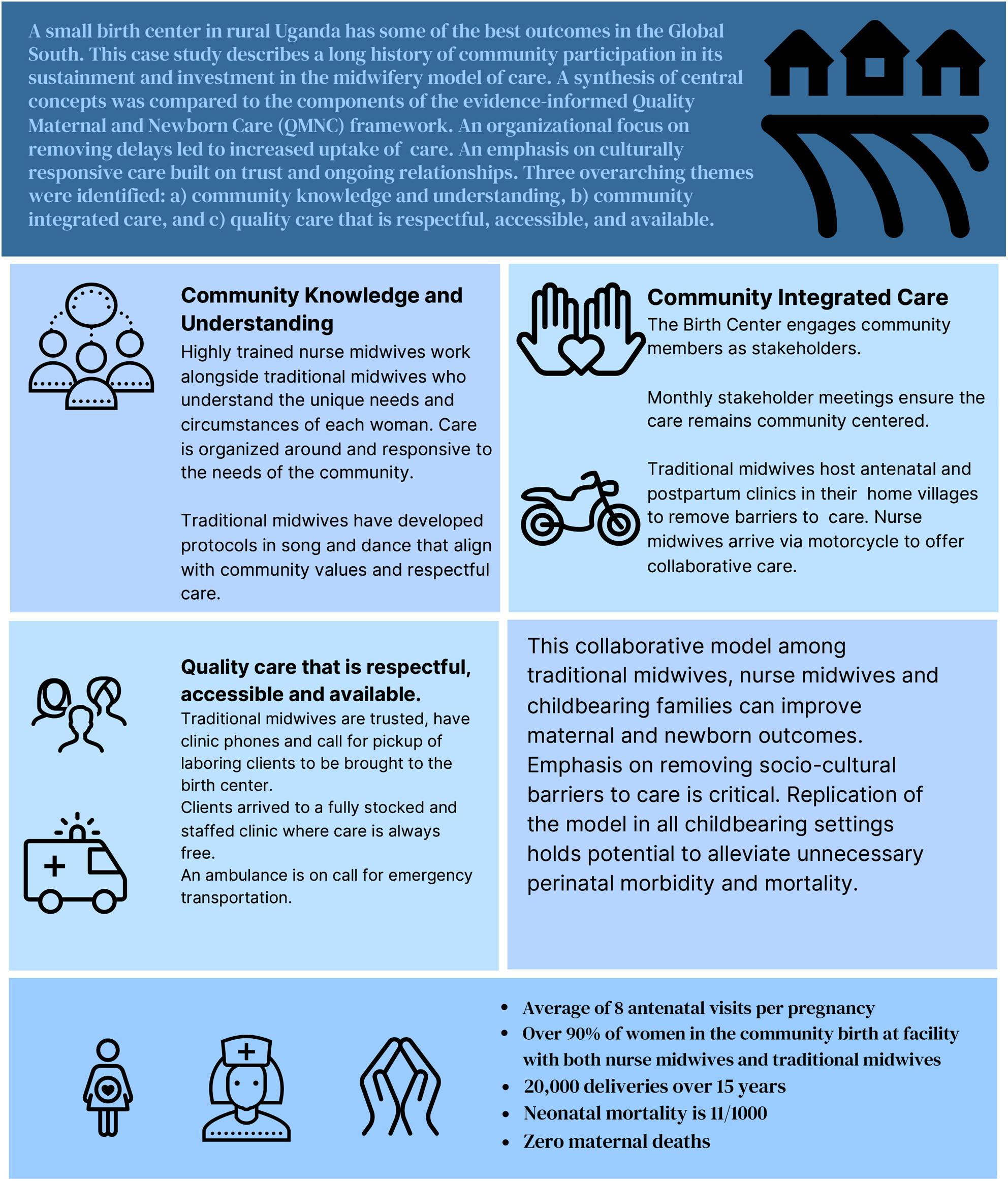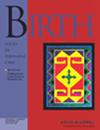A case study analysis of a successful birth center in northern Uganda
Abstract
Background
Mothers and infants continue to die at alarming rates throughout the Global South. Evidence suggests that high-quality midwifery care significantly reduces preventable maternal and neonatal morbidity and mortality. This paper uses a case study approach to describe the social and institutional model at one birth center in Northern Uganda where, in over 20,000 births, there have been no maternal deaths and the neonatal mortality rate is 11/1000—a rate that is lower than many high-resource countries.
Methods
This case study combined institutional ethnographic and narrative methods to explore key maternal and neonatal outcomes. The sample included birthing people who intended to or had given birth at the center, as well as the midwives, staff, stakeholders, and community health workers affiliated with the center. Data were collected through individual and small group interviews, participant observation, field notes, data and document reviews. Iterative and systematic analytical steps were followed, and all data were organized and managed with Atlas.ti software.
Results
Findings describe the setting, an overview of the birth center's history, how it is situated within the community, its staffing, administration, clinical outcomes, and model of care. A synthesis of contextual variables and key outcomes as they relate to the components of the evidence-informed Quality Maternal and Newborn Care (QMNC) framework are presented. Three overarching themes were identified: (a) community knowledge and understanding, (b) community integrated care, and (c) quality care that is respectful, accessible, and available.
Conclusions
This birth center is an example of care that embodies the findings and anticipated outcomes described in the QMNC framework. Replication of this model in other childbearing settings may help alleviate unnecessary perinatal morbidity and mortality.


 求助内容:
求助内容: 应助结果提醒方式:
应助结果提醒方式:


